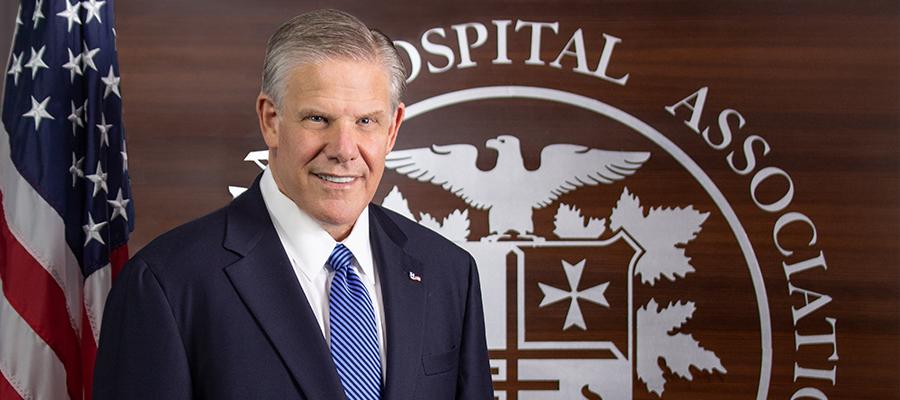Perspective: The hospital of the future needs a workforce to match

Former Federal Reserve Chairman Ben Bernanke once said: “No economy can succeed without a high-quality workforce.”
The same is true for our field: In order to succeed, we need the best people.
At the AHA, making sure the 5.5 million women and men of America’s hospitals and health systems are prepared for the future is among our top priorities.
We already have a short-term Workforce Agenda aimed at strengthening both the individuals and teams providing lifesaving care in our facilities. It includes protecting federal resources for graduate medical education and nursing and training allied health professionals; working to improve the diversity of our workforce and supporting the AHA’s professional membership groups; building workforce resiliency; and preventing violence in the workplace through our Hospitals Against Violence initiative.
This is important work … but we also need to be thinking long term. This is particularly true given that our field is experiencing transformation like never before.
That’s why, last week, we launched the Changing Workforce task force to help us prepare for the future.
The task force is chaired by Catherine Jacobson, president and CEO of Froedtert Health in Wisconsin, and is made up of health care leaders representing hospitals and health systems, state hospital associations and medical education. They’re from organizations big and small, and rural and urban. And they’re the right group of people to help us address this challenge.
Why? Because they know what skills are necessary as care moves out of our buildings and we see more “health care without an address.” They know what skills are necessary to manage care across the continuum. They know what skills are necessary to manage risk and use data to both improve care and keep patients connected to our organizations.
And, they know what skills are necessary to address the challenges we face, including shortages in primary care and behavioral health providers, the effects of artificial intelligence, and the impact of private equity and other corporate organizations buying physician practices.
They also know that — despite all the talk about machines and efficiency — health care will always require a human touch.
Building on their expertise, this task force will work to answer the key workforce questions we face: How does our workforce transform while maintaining that human touch? What are forward-thinking, concrete and actionable ideas that will help us prepare for the future work environment?
Here’s the bottom line: In order to be successful, we must strengthen our existing workforce and develop our future workforce. AHA is working hard to support your efforts to transform and prepare your teams for the future. Stay tuned for updates from the task force.

